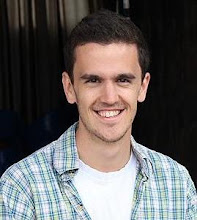A few days ago I boarded a plane,
as I have countless times these three years in Africa; the same old suitcase in
tow (though wearing a few more dents and bruises than it once did); the same
old passport and immigration rigmarole; the same old stifling musk of too many
anxious passengers crammed into a Zambian departure lounge. Same old, yet
different; same old, yet somehow new. Because for the first time in three long years
my ticket was one-way. Yep. I tore off the tarmac of the runway, bound for South
Africa and eventually, a week later, home.
Three years at its end. I knew it
was coming, but that makes it no easier. I knew the time I had left to finish
things up, but it's never time enough. The end drew near faster than it should
have. It always does.
That is how my last morning
prayer meeting at Kachele Farm, that haven of love and peace I've come to call
home these three years, found me before I had half realised it was coming. The
night before, I had knelt there in my room praying over what I would say, a parting
word of encouragement or challenge or blessing worthy of this dear family of
mine. Yet kneeling there, scanning my heart, I found myself unable to say
anything at all, even to God.
- In the silence of the heart, God speaks -
Mother Teresa
Silent, speechless, undone, but
for one thing. Bubbling up and out of me like water spluttering over the sides of
a pan, I found myself saying...
Thank You. Thank You.
It was all I could say. Thank
You, Dad. Thank You, Jesus. Thank You, Spirit, for ever being with me.
No other words seemed right. No
other words could have been any harder.
So when the following morning did
appear, I fumbled in my mind over the words to say and settled on a few. But
when I was called upon to bring my parting word, a deeper and truer part of me interrupted
my practiced composure and all I found myself saying, through tears and chokes,
was
Thank You.
That is my parting word.
For all that is gone before,
for every face etched on my heart,
for every tear that testified to the
indwelling heart of God,
for every moment this family bore
me up over ragged rocks too hard for me,
and for every moment they threw
me from my snug boat out into open water,
for the company,
for the unexpected shafts of the
miraculous brightening a dull way,
and for the every-day much
comforting ordinariness too,
for Tawonga, the funniest and
free-est three year old I've ever known,
for every mistake, mishap,
misfortune and moment of mayhem (and there were a few),
for every child and Gogo I had
eyes to notice and ears to listen to, and for all the ones I missed,
for being interrupted by love,
for finding what I didn't expect
to find, one with whom I can share all my days,
but above all for grace,
that mad grace that led me here and
ever bears me on,
Thank You.


